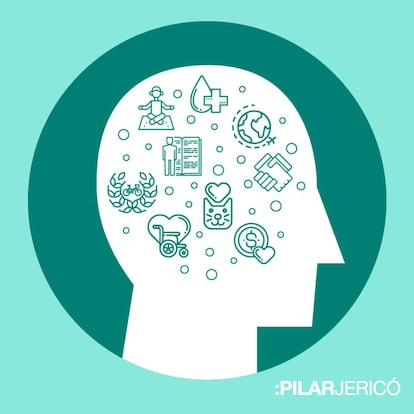If you want to do better at work (and in life) look beyond the traditional resume
Investing time in hobbies will help you to become a more positive and professional person

A few years ago, I had the opportunity to interview Pedro Luis Uriarte, one of the most brilliant bankers in Spain. As we spoke, I was amazed – not only by his impressive career – but by his other, lesser-known life, one that explains his sensibility towards people and his leadership qualities. It was writing poetry, along with other pastimes, that gave him an incredible ability for self-reflection. It was the same case with Antonio Garrigues, one of the best lawyers of the past few decades, who has written numerous plays and has one of the keenest minds when it comes to being human.
What activities have helped you know yourself better, maybe without you even realizing it?
The previous examples are people who have built what is called a curriculum B, which although doesn’t normally appear in traditional resumes, can help us improve our self-awareness. Knowing what we feel, or what is going on with the people around us, gives us valuable tools to improve our own lives. This could be through personal growth courses, writing poetry or plays, or simply trying to connect with ourselves and discover our own limits. In other words, any activity that helps us to critically and constructively self-reflect.
A curriculum B allows us to grow on a personal level and, curiously enough, on a professional level as well. When we train ourselves to develop empathy, we can improve our ability to negotiate with clients or bosses. By building business intuition or learning how to manage emotions, we can avoid blowing up at work meetings. This is why it should come as no surprise that Lee Lacocca, one of the most well-known American executives of the 1980s, says that the studies which most helped his professional career were not in engineering but in applied psychology and theater: the first to help him understand the people around him and the second, to speak well in public. Just as school teaches us to build up our traditional resume, we should look for ways to add to our curriculum B, the one that is not always used, but that equips us with important tools for life and work. So how to do we this?
Our ability to grow does not solely depend on what we learned in school or university
Think about your past. What activities have helped you know yourself better, maybe without you even realizing it? It could be theater, poetry, meditation, volunteer work, painting… Interestingly, the more different it is to your professional training, the better it completes you. Remember that a curriculum B does not refer to just your interests, but also activities that help you reflect and improve on a personal level. If you are looking for work, it’s worth adding this to your traditional resume and mentioning it your interview. Similarly, if you are conducting an interview, it is a good idea to look into this part of a person’s resume – it’s what will give you insight into the candidate’s concerns.
Ultimately, the ability to successfully grow both personally and professionally does not solely depend on what we learn in school or university. Our extracurricular activities and hobbies also count. It is only when we invest time, energy and motivation into becoming a better person, that we are able to overcome the hard times, develop a more positive attitude and become better professionals. Everyone has to choose their own path and understand that the journey to self-knowledge is infinite, because, as Oscar Wilde used to say, “only the shallow know themselves.”
English version by Laura Rodríguez.
Tu suscripción se está usando en otro dispositivo
¿Quieres añadir otro usuario a tu suscripción?
Si continúas leyendo en este dispositivo, no se podrá leer en el otro.
FlechaTu suscripción se está usando en otro dispositivo y solo puedes acceder a EL PAÍS desde un dispositivo a la vez.
Si quieres compartir tu cuenta, cambia tu suscripción a la modalidad Premium, así podrás añadir otro usuario. Cada uno accederá con su propia cuenta de email, lo que os permitirá personalizar vuestra experiencia en EL PAÍS.
¿Tienes una suscripción de empresa? Accede aquí para contratar más cuentas.
En el caso de no saber quién está usando tu cuenta, te recomendamos cambiar tu contraseña aquí.
Si decides continuar compartiendo tu cuenta, este mensaje se mostrará en tu dispositivo y en el de la otra persona que está usando tu cuenta de forma indefinida, afectando a tu experiencia de lectura. Puedes consultar aquí los términos y condiciones de la suscripción digital.








































